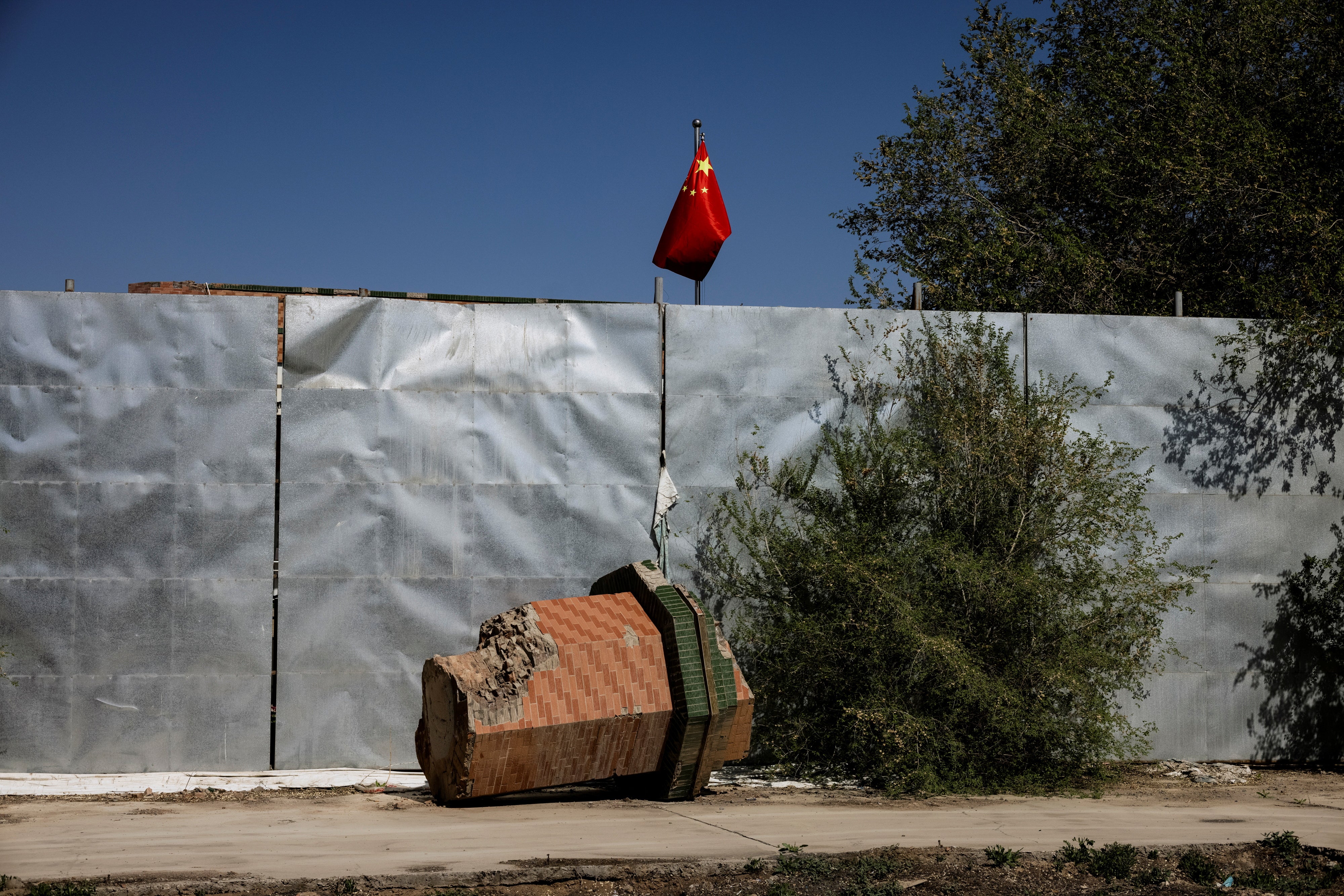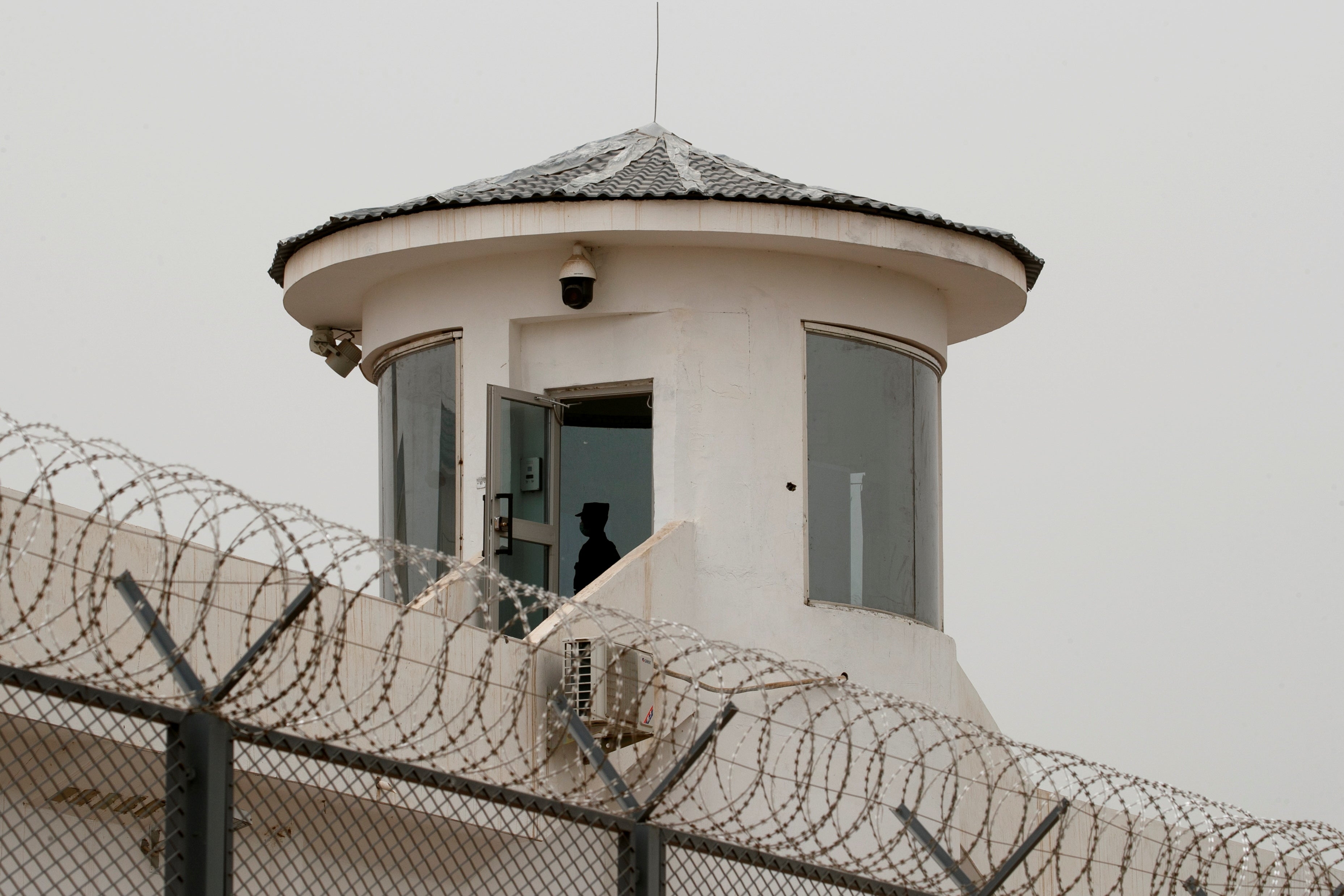Nowhere is safe: Uyghur activist faces deportation back to China after being arrested in Morocco
The plight of a Uyghur activist arrested in Morocco has highlighted how China is pursuing opponents abroad, reports William Yang


The wife of Yidiresi Aishan last saw him on 19 July. The 33-year-old Uyghur was on his way to Europe, hoping to find a safer place for him, his wife Buzainuer Wubuli and his family after being repeatedly arrested in Turkey for years.
“He wanted to go to Europe to live a peaceful life because he had been arrested four times in Turkey,” says Wubuli. But soon after he landed in Morocco, Aishan was arrested by police, based on a red notice issued against him by Interpol. The authorities then informed the Chinese embassy in Morocco on 20 July.
Since Morocco and China signed an extradition treaty at the beginning of the year, Aishan faces being deported back to China, where experts fear that he won’t be given a fair trial.
“According to the extradition treaty between Morocco and China, the Chinese authorities have 45 days to formally send a full dossier to the Moroccan government and process his arrest,” says Laura Harth, campaign director at human rights NGO Safeguard Defenders in Spain.
Harth says Aishan’s hearing has been postponed several times since the Chinese government hasn’t delivered its dossier but on 1 September, the third hearing for his case, the court announced that it had received the dossier, which forced the defence team to ask for another postponement of the hearing to 22 September.
In fact, Interpol had cancelled the red notice for Aishan late last month after it conducted a review after receiving new information.
Uyghur activists say the cancellation of the red notice is the ground for the Moroccan government to release Aishan.
“Since Interpol has already cancelled the red notice, there is no reason to keep him in detention,” says Abduweli Ayup, a Uyghur activist in Norway. “It’s not acceptable.”
Ayup says on the day that he arrived in Morocco, Aishan’s wife received a surprise phone call from her father from whom she hasn’t heard for four years: “He said he wanted to meet his son-in-law but since Aishan and his wife got married in Turkey, his father-in-law has never met him.”
Then Aishan’s wife received another call from her father and this time, he gave her his Skype ID, asking her to contact him through Skype if she had any information on Aishan’s whereabouts.
“The thing is that no one in XInjiang can use Skype, so for him to offer his Skype ID, it shows that the local government in Xinjiang is most likely surveilling Aishan,” Ayup explains.
Aishan and his wife left Xinjiang in 2012 and 2013 for Turkey as the Chinese government began to crack down on Uyghurs and other ethnic minorities in the region. In the years following their departure, an estimated million Uyghur people have been interned in camps.
Reports about human rights violations have surfaced since the internment camps came to light. Uyghur people were reportedly put into forced labour programmes while authorities try to systematically suppress the birth rate by forcing women to be sterilised or fitted with contraceptive devices.
After moving to Turkey, Aishan has been active in the diaspora. He helped to publish newsletters aimed at sharing resources for resettlement and wrote a book about computer hacking for the Uyghur community. However, his activism may have caused him to become the target of Beijing’s overseas crackdown.
“He has been arrested four times in Turkey because the Chinese government wanted him,” says Ayup.
According to him, Aishan isn’t the only one. This year, more than a dozen Uyghurs across Turkey have been arrested and some told that they might be deported back to China.
These factors push some like Aishan to embark the risky journey of migrating to Europe, where they believe the more transparent and established judicial system can offer them security.
“He wanted to go to the Netherlands or some other European countries and he wanted to bring us over after he settled down,” says Aishan’s wife. “I’m also scared about my own safety in Turkey.”
In fact, Aishan is not the first Uyghur that faces possible deportation back to China after arrest based on an Interpol red notice. Dolkun Isa, the President of the World Uyghur Congress in Munich was detained or threatened to be extradited to China in several countries for almost 20 years due to a red notice.
Isa’s experience highlights China’s growing use of terrorism charges against overseas Uyghurs and Beijing has been criticised for manipulating Interpol red notices for its own political goals.
“China has been denounced for its political use of Interpol red notices for many years, and due to the lack of transparency of the Interpol system, it is hard for people to know whether they are on the list or not,” says Harth.
Apart from turning Interpol red notices into a political weapon against dissidents and ethnic minorities in exile, Uyghur activists say people who are most vulnerable to possible deportation are those without any travel documents.

“They may be travelling on expired Chinese passports and since the Chinese government has stopped renewing passports for Uyghurs living abroad, they will often be asked to return to China in order to get new passports,” says Zumretay Arkin, campaigns and advocacy director at the World Uyghur Congress.
“Of course, going back is not an option for most Uyghurs abroad and that’s why the Chinese government exploits this vulnerability. Through their cooperation and tight economic or diplomatic relations with other countries or organisations like Interpol, they are able to further their repression of Uyghurs even outside of China,” she adds.
Harth says while some people in China are trying to flee the increasingly repressive climate in the country while the government is actively seeking people abroad with all the possible means, Aishan’s case will be very important as it is the first case since Morocco has had the extradition agreement with China.
She told The Independent: “We hope the Moroccan authorities are aware that the world is watching and I think our biggest concern is what Aishan might face if he was deported back to China.”






Join our commenting forum
Join thought-provoking conversations, follow other Independent readers and see their replies
Comments